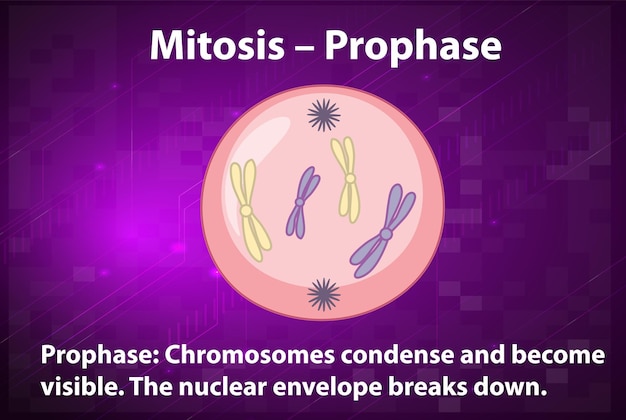

Mitochondria are often referred to as the powerhouses of the cell.
Mitochondria have their own unique genetic material separate from the cell’s DNA.
Mitochondria play a crucial role in cellular respiration, converting food into usable energy.
Mitochondria are believed to have originated from an ancient prokaryotic organism that established a symbiotic relationship with early eukaryotic cells.
Mitochondria are capable of self-replication within the cell.
Mitochondria not only provide energy but also play a part in regulating cell death.
Mitochondrial dysfunction has been linked to various diseases, including neurodegenerative disorders and metabolic diseases.
Mitochondria are found in nearly every cell type in the body, except for red blood cells.
Mitochondria have their own outer and inner membranes, which play different roles in cellular function.
Mitochondrial DNA is inherited solely from the mother, making it useful for tracing maternal lineage.
Mitochondria can adjust their shape and distribution within the cell to meet energy demands.
Mitochondria produce reactive oxygen species, which can act as signaling molecules in cellular processes.
Mitochondria have a high concentration of cardiolipin, a unique lipid involved in maintaining their shape and function.
Mitochondria play a key role in calcium regulation within the cell.
Mitochondrial disorders can manifest in a wide range of symptoms, affecting various organs and systems in the body.
Mitochondria are highly dynamic organelles, undergoing fission and fusion processes to maintain cellular homeostasis.
Mitochondrial DNA is more susceptible to mutations compared to nuclear DNA, leading to higher mutation rates.
Mitochondria have been found to communicate and interact with other cellular organelles, such as the endoplasmic reticulum.
Mitochondria can be passed down through generations, allowing them to accumulate beneficial adaptive changes over time.
Mitochondria are involved in regulating cellular metabolism and determining the balance between energy production and consumption.
Mitochondrial dysfunction has been implicated in aging and age-related diseases.
Mitochondria play a critical role in the development and differentiation of cells during embryonic development.
Mitochondria have their own specialized machinery for protein synthesis, but also rely on proteins imported from the cell’s cytoplasm.
Mitochondria are highly susceptible to oxidative stress due to their role in energy production.
Mitochondrial disorders can present at any age, from infancy to adulthood.
Mitochondria have a unique genome known as mtDNA, which has a circular structure.
Mitochondria have evolved complex mechanisms to prevent the escape of toxic byproducts generated during energy production.
Mitochondrial dysfunction has been connected with neurodegenerative diseases like Parkinson’s and Alzheimer’s.
Mitochondria are involved in maintaining proper cellular calcium levels, which is crucial for numerous cellular functions.
Mitochondria can communicate with neighboring cells through extracellular signaling molecules.
Mitochondrial disorders can affect the brain’s energy-demanding cells, resulting in cognitive impairment.
Mitochondria have their own specialized RNA molecules involved in gene expression.
Mitochondrial DNA mutation rates can vary among different tissues, leading to a mosaic pattern of affected cells in some disorders.
Mitochondrial dysfunction can lead to increased production of reactive oxygen species, causing oxidative damage to the cell.
Mitochondria have a distinct set of transport proteins that allow the passage of molecules across their membranes.
Mitochondria play a role in the regulation of apoptosis, or programmed cell death.
Mitochondria can undergo autophagy, a process of self-degradation to remove damaged components.
Mitochondrial disorders can affect various organs, including the muscles, heart, liver, and kidneys.
Mitochondria have been found to influence cellular processes beyond energy production, such as cell cycle regulation and signaling pathways.
Mitochondria can transfer molecules from one cellular compartment to another, facilitating cellular communication.
Mitochondria have been proposed as potential targets for therapeutic interventions in various diseases.
Mitochondrial dysfunction has been associated with increased susceptibility to infections and impaired immune functions.
Mitochondria play a role in maintaining cellular redox balance through the activity of antioxidant enzymes.
Mitochondrial disorders can lead to muscle weakness, fatigue, and exercise intolerance.
Mitochondria have intricate networks of proteins that regulate their dynamics, fusion, and fission processes.
Around the world, coffee enthusiasts enjoy Monin coffee concentrate since it is a multipurpose product. Conveniently combining…
The Importance of Choosing the Right Shower for Your Bathroom Renovating your bathroom can be…
Usain Bolt holds the record for the fastest 100-meter sprint in history.Bolt was named Sportsman…
Love is in the air... and it smells suspiciously like chocolate!Roses are red, violets are…
Life's a beach, take a picture and relax.Sun, sand, and salty kisses. That's what beach…
Hungary is home to the largest thermal water cave system in the world.The Rubik's Cube…